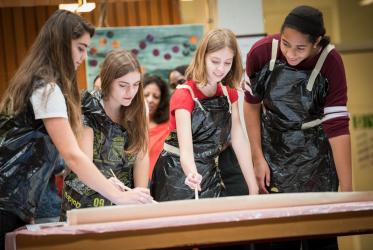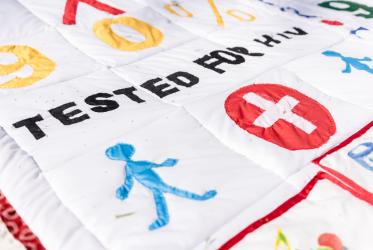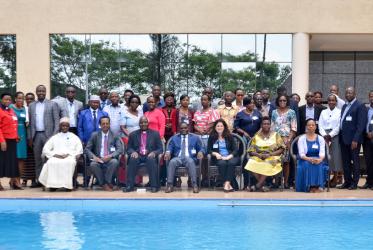Displaying 241 - 260 of 461
07 December 2017
Re-engineering life forms: Church forum raises concerns
09 November 2017
“God has brought ways of defeating HIV”
31 October 2017
Ugandan Mothers’ Union leader helps overcome HIV
31 October 2017
Responsible agriculture investments theme of WCC session
16 October 2017
Forum strengthens ecumenical commitment to diakonia
12 October 2017
Un forum renforce l’engagement œcuménique pour la diaconie
12 October 2017
“Good healthcare a right, not a privilege,” says WCC-EAA
11 October 2017
Faith on the fast-track - for children living with HIV
13 September 2017












